The Invisible War
China shot down nine Australian F35's in the battle so far. F35 economic equivalent units that is. The public perception of whether we are at war is itself a "front" in this battle.
Nobody Died - How Are We At War ?
Wang Wei died, April 1, 2001. A grateful nation will never forget.
Wang Wei crashed into a US surveillance plane forcing it to land in Hainan. Personifying the tragedy is a good propaganda tool for endlessly reheating public anger.
Australians don’t feel like we are at war, because there are no faces and names of martyrs. China has a statue at Wang’s tomb and people offer model airplanes in his honour.
His face is known to over a billion grateful citizens.
Australian pilots who have had lasers shone at them by the Chinese military, did not crash and we know nothing about their injuries.
The Australian pilot of a surveillance plane who had a Chinese jet fly in front and drop aluminium chaff, obscuring vision and potentially damaging air intakes of his engine - did not crash.
“RAAF crews offered counselling” doesn’t energise popular opinion like footage of Australian pilots crashing in a ball of flame.
China hasn’t yet given us a martyr like Wang Wei. Check the video below to understand his modern propaganda value.
Mao Ze Dong said1
‘war is the politics of bloodshed and politics is war without bloodshed’
Negotiation (politics) is about offering something for something, or threatening to do something bad to get something you want.
A credible threat of military combat is a useful negotiating lever.
Why Are Who Fighting For What ?
The CCP Is Fighting For Preservation.
The PLA is the CCP’s army. If the CCP loses power, powerful individuals and families risk losing everything. China’s decisions must be seen through the lens of what preserves the CCP’s power, not necessarily the same as China’s interests.
CCP / Chinese interests include the following:
Narrative Control:
In addition to keeping competing ideas hostile to the CCP out of China, it is necessary to control the narrative outside China. This is to control:
opinion in China,
opinions held by Chinese outside China, and
public opinion around the world.
Economic Control:
In order to keep the people happy and busy, and disinterested in politics, it is necessary to continuously improve the people’s standard of living. This means:
Obtaining advanced technology
Having access to required raw materials.
Gaining foreign investment opportunities
Access to export markets
Border Consolidation:
Border victories better protect the country and therefore the party.
They distract the people from poor economic prospects due to demographic crises and economic stagnation of the Party’s own making.
External conflict can be used to justify oppression of opponents in China. Even if China loses, the party wins.
Currently the main territories in focus are:
Consolidation of control of the South China Sea
CCP control of Taiwan as the only form of “unity” with China
Parts of India, ultimately including “South Tibet” / Arunachal Pradesh.
Leave Amur province (nearby Siberia) for later2.
Political Influence - Control over other countries, to build alliances and extend CCP power.
Australia is fighting for yesterday.
“Yesterday” means preserving the nation we thought we lived in. One that was:
Sovereign:
Citizens controlled their own and their nations destiny.
Free:
The people lived life the way they chose. This generally leads to rising wealth and livelihood, but the choice is to live as you choose.
Democratic:
Free Media: The freedom to tell and know the truth.
Independent legal system to enforce laws free of interference from the powerful.
Education system where students were taught how to think, but not which political opinion to have.
The ability to make an informed choice of who our government representatives should be and for anyone to be free to actively engage in political activity.
Wealthy.
Australia has usually been a wealthy nation for over one hundred and twenty years.
Lots of nations have natural resources and failed, but Sovereignty, Freedom and Democracy led to and protected our wealth.
We require open access to trade lanes. Our ability to frustrate trade related economic coercion and maintain our common wealth is vital to protect against forces who would erode our sovereignty, undermine our freedom or diminish our democracy, to advance their interest at our expense.
The CCP dream of perpetual rule is a threat to the Australian dream of freedom indefinitely, because they need to control our public opinion, our diplomacy, our military strategy and our economy.
Here’s How We Are At War
The following abbreviated list of “warfares” are tactics that are used in combination.
Kinetic Warfare:
Brinkmanship and Threats:
Military threats are merely one tool of negotiation - threatening violence if your counterparty does not give you what you want. To be effective it needs to credibly appear to be low cost to the perpetrator and high cost to the victim.
It’s just one of the levers of power and the failure of brinkmanship in practice (ie actual violence) may represent strategic failure.
If your opponent thinks you will win then you may not need to fight. The phrase “strategic miscalculation” has become a euphemism for military conflict, because in theory, smart countries lose without battle and smarter countries win without battle.
Outspend U$ To Hurt U$:
Forgotten in most discussion of China’s military build up is China’s low cost advantage. They can do everything cheaper. Attempting to keep up puts a quantifiable economic strain on Australia.
Our defence expenditure is significantly more exposed to imported military equipment. China keeps civilian use tech spinoffs and military profits in China.
The Three Warfares:
These tactics are implemented by the PLA itself, by the Ministry of Foreign Affairs (MOFA) and The United Front Work Department (UFWD), but ultimately implementation is every patriotic citizens work.
Public Opinion Warfare: Influencing behaviour by misinformation and persuading the target that what China wants is what they want.
Psychological Warfare: Influence behaviour by affecting values, beliefs, emotions and motives.
Legalistic Warfare: Using international treaties, UN agreements as well as the local laws to frustrate the goals of opponents.
Direct Political Influence:
Engage with decision makers directly, creating financial and public opinion incentives to get them to make decisions in the interest of the influencer.
Use covert operatives3, trained in this exercise, as well as UFWD4 and others enlisted to this cause.
Economic Coercion:
Threaten and implement trade sanctions to coerce desired decisions.
Cyber Attacks:
Create economic costs and disruption
Extract information
Gain the ability to control infrastructure, without the victim knowing.
Create fear that systems may be compromised or could be attacked at any time.
The desire to avoid any or all of the above is an incentive to surrender to the intimidators demands.
How Is War Against Australia Being Fought ?
The following are only some brief examples of the types of warfare we are dealing with.
Kinetic Warfare
The threat of military action is used with other tools to coerce or control others. To make the threat credible, China is incrementally taking us to the brink:
Dropping aluminium chaff into aircraft engines.
Shining high powered blinding lasers at aircraft.
Maybe using EMP (Electromagnetic Pulse)5 weapons to disable electrical systems of large vessels departing Tonga after aid delivery.
Getting retired Admirals to write articles suggesting that the running dogs, rather than the US, will suffer first in a conflict, and expect our intelligence services to read them and tremble.6
This bullying is to psych us out and wear down our will to fight.
China is gambling that a (Wang Wei type) “miscalculation” that involves Chinese losses can be converted into a propaganda victory to harden Chinese public feeling against Australia and alienate Chinese in Australia.
They are gambling that if there are Australian casualties, the effect in Australia will be fear, confusion and division.
Public Opinion Warfare:
Media:
China has cultivated key individuals to help promote China’s narrative.
China controls most Chinese language news in Australia, and mainstream media are willing to give Ambassadors and consulate staff a platform to spread their views - which we can’t do in China.
Wechat, Weibo and Tik Tok are all subject to CCP narrative control through censorship and boosting of stories that “tell China’s story well”. They can and did stop an Australian Prime Minister attempting to communicate to his fellow citizens. Nothing has been done.
Youtube and other non CCP controlled social media are flooded with Chinese media manufactured content to swamp the internet with their story. Youtube can’t stop this, we need to generate truthful content to counter it.
Education:
Confucius Institutes can only employ CCP loyal staff. Their purpose is to control how Australian students of Chinese language or China perceive China.
Australian Universities have employed Chinese consulate staff to teach courses on China, rendering the course of little value to students except in terms of understanding the CCP propaganda line.
Thinktanks:
The Australia China Relations Institute (ACRI) was established by a notorious United Front figure (Huang Xiang Mo) and has since engaged in efforts to write reports, hold events and have employees write regularly to mainstream news to influence opinion according to the Chinese narrative, and against Australian interests.
Other think tanks and business groups exist for their members to deal with China - so their ability to counter the Chinese narrative and avoid being co-opted is weak.
Psychological Warfare:
This involves the combination of all other warfares to create fear and trepidation. Consider:
The popularisation of the idea that when dealing with China we should avoid “megaphone diplomacy” and not publicly discuss important issues. Make decision makers walk on eggshells, be indecisive, fearing retribution if they offend China by words or actions.
Reckless military behaviour, offensive cartoons of Australian soldiers accused misdeeds in Afghanistan, threats, denials and insults and refusal to engage in communication, all combine to wear down our political representatives and opponents of the CCP.
Australia’s CCP controlled social media can be used to attack and denigrate individuals who speak out. On CCP WeChat, in Australia, you can’t retaliate or put your side of the story. This can take a personal toll and warns away others.
Kidnap citizens, like Canada’s two Michaels or Australia’s Cheng Lei and Yang Heng Jun.
Legalistic Warfare:
China used the UN to tie up Australian diplomatic and political resources to counter listing the Great Barrier Reef as “endangered”. We frustrated it, but it was costly.
Australia is not an idle bystander in application of international Lawfare. No one ever thought that a WHO enquiry on the cause of COVID 19 would be permitted by China to achieve anything substantive, but as a fightback against Chinese attacks, calling for, and achieving the enquiry showed that Australia can punch back, using unconventional warfare; lawfare.
Direct Political Influence:
Huang Xiang Mo complained "We need to learn … how to have a more efficient combination between political requests and political donations."
This was a gift in terms of helping the Australian public understand the threat. No one before had been so blatant.
Sam Dastayari remains the poster boy for co-optation7 by the United Front. He openly supported China’s claims in the South China Sea. He was in charge of (among other things) fundraising for the ALP at the time.
(Victorian Premier) Andrews and (Victorian Treasurer) Pallas and WA Premier McGowan can always be counted on to undermine national solidarity by speaking up for China against Australia.
In addition to undermining the Federal governments negotiating position by signing up to the Chinese BRI (Belt and Road) at a state level, many of Andrew's comments echo talking points and even vocabulary that plays well in translation8. The motivation is Chinese community votes, support from the business community, and funding.
Don’t get me started on Teals shilling the China narrative at United Front events.
But maybe read Herding Cats - Uniting Politicians .
Economic Coercion:
One year of trade attacks is the equivalent of China shooting down four Australian F35 fighter planes.
Total exports of goods to China targeted by the trade sanctions fell by about $5.4 billion over the year to the end of the 2021 June quarter. Over the same period, exports of those goods to the rest of the world (mainly Japan and other parts of Asia9) increased by $4.4 billion.10
The economic losses are higher transport costs and possible lower sales prices for almost the same volume of goods sold.11 12
Let’s assume that due to substitution effects (commodity musical chairs) the actual damage was much less than Chinese decision makers intended (circa $ 20 billion), but still inflicted one billion dollars worth of economic damage ($5.4B-$4.4B). Let’s assume that an F35 costs $ 214 million.13
One year of trade attacks, measured in F35 equivalent units, is the equivalent of China shooting down four F35s.
Trade attacks reduce our ability to:
buy more weapons
pay back national debt
build schools, roads and hospitals
run the country.
War without violence, but a war just the same.
Cyber Attacks:
Quantifying the dollar value of cyber attacks directly attributable to China is even more difficult, as revealing the detail might be a psy-op win for China, creating fear and panic.
In attempting to research this, I was advised that the cost would easily top a billion dollars over the last decade. If this is the case, then we have lost a further four F35 equivalent units - up in cyber virtual flames. The spare change accounts for another one making that five14.
Nine Australian F35s shot down so far:15
Beyond the nine virtual F35’s shot down (the pilots survived), the damage from many of the other warfare methods, while not quantifiable in dollar terms, are real and tangible.
Damage to social cohesion, unity and weakened determination to defend our sovereignty are real costs of modern hybrid warfare strategies.
Can We Win ?, What Should We Do ?
Defining Winning :
Winning against China includes:
Maintaining our way of life
Undoing the damage that has thus far been done to our political system, education system and traditional media / social media environment.
Resisting further compromise along the lines of the fourteen demands.
They will never stop trying to control us. We must never accept compromise or give an inch. There is much to be done.
Action Steps:
The Australian government has worked to build alliances in our region and beyond.
These alliances cover more than defence and intelligence, but include trade, including cooperation to develop critical technologies and resources, but also to fight back against trade coercion16.
These are positive steps in the right direction. Ask what you can do for your country.
The CCP relies on lies to survive. We need to ensure our populace have a shared understanding of what we are dealing with. The only way to do this, is to rely on objective fact to actively fight the public opinion war (新闻舆论斗争)17.
Military kit is important, but it’s only part of the whole of society approach to defending our nation.
What we can all do is get educated, get smart about China and its activities in our country and beyond. When the majority of people understand and cannot ignore the problems, solutions can be found and applied in each different battlefront. Politicians will be the last to act - when they have no choice.
We need to think like the CCP, and accept that nearly every interaction with China, is a battlefront now.
Read, listen, talk, and act. Join a democratic political party, community groups, form your own.
Fight on every front.
Democracy is not a spectator sport. Neither is Sovereignty.
Little Red Book, 2nd ed., Peking, Foreign Language Press (PFLP), 1968, pp. 58-9.
or maybe not ? “China Challenges Russia by Restoring Chinese Names of Cities on Their Border”
This may sound extreme, but then Alex Joske wrote “Spies And Lies” (Hardie Grant Books) substantiating the idea that much influence was coordinated by actual intelligence operatives, not just UFWD personalities.
United Front Work Department and bodies under its control
China has EMP weapons that can disable major electrical systems. In early 2022 Chinese and Australian Naval vessels were sent to Tonga to assist with natural disaster relief. At time of departure, the Australian Naval vessel HMAS Adelaide repeatedly had electrical failures and was essentially adrift. Official explanations were slow in coming and seem odd. If this was simply a genuine technical foul up, our navy is hopeless and China missed a good opportunity to intimidate us. I suspect our navy is not hopeless.
Admiral (retired) Zhang Zhao Zhong (张召忠) writes “如果未来某一天美国在某些方面越界,那么未来首先遭殃的很可能是美军旁边的“小弟”们。” If the United States cross the line in some aspects one day in the future, it is likely that the "little brothers" next to the U.S. military will be the first to suffer.
This is discussed in The Beginners Guide To CCP Shill-Spotting
Note that in order to export to much of South East Asia you need access to the South China Sea, and to export to North Asia, it adds transport cost not to transit Chinese militarily controlled, diplomatically contested waters. The combination of Chinese trade sanctions AND cutting off access to the SCS would be dramatically more damaging than trade sanctions alone.
Mike Smith AFR Dec 21 2022 China’s sanctions against Australia have been a spectacular failure
To get a feel for the complexity of quantifying economic losses due to trade sanctions, readers are encouraged to devote a few days reading the following documents:
Countering China’s Coercive Diplomacy (ASPI),
Understanding How China’s Tariff on Australian Barley Exports Will Affect the Agricultural Sector,
Wine Economics Research Centre Wine Policy Brief no 28.
or accept that it is pretty large, on a scale with kinetic war.
Calculating the cost of economic coercion is fraught with complexity due to the fact that we mainly sell undifferentiated commodities. If China doesn’t buy them from us, they have to buy from elsewhere. This means we can then sell to whoever missed out because their usual supplier supplied China instead.
58 F-35 Joint Strike Fighters (JSF) at a cost of $12.4 billion = $ 214 million per plane. Defence procurement is notoriously complex and hard to control, but we needed a number.
and a more symmetrical graphic image.
Including the spare change: $ 1 billion for trade sanctions, $ 1 billion for cyber attack, $ 214 M per F35 = 9.346 F35’s. ie 9 ⅓ planes shot down so far.
U.S. calls for joint G-7 action to prevent China's economic bullying: Nikkei Asia April 2, 2023
public opinion war ? struggle ? battle ? 斗争。 This is the Chinese way of describing it. Searching under 新闻舆论战线 public opinion battle line, and 新闻舆论战争 public opinion war lead to plenty of headlines indicating that public opinion management is thought of by Chinese defence and other agencies as a warlike activity.

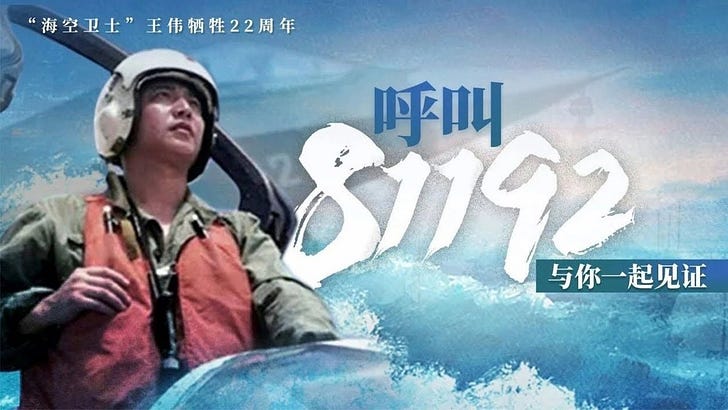




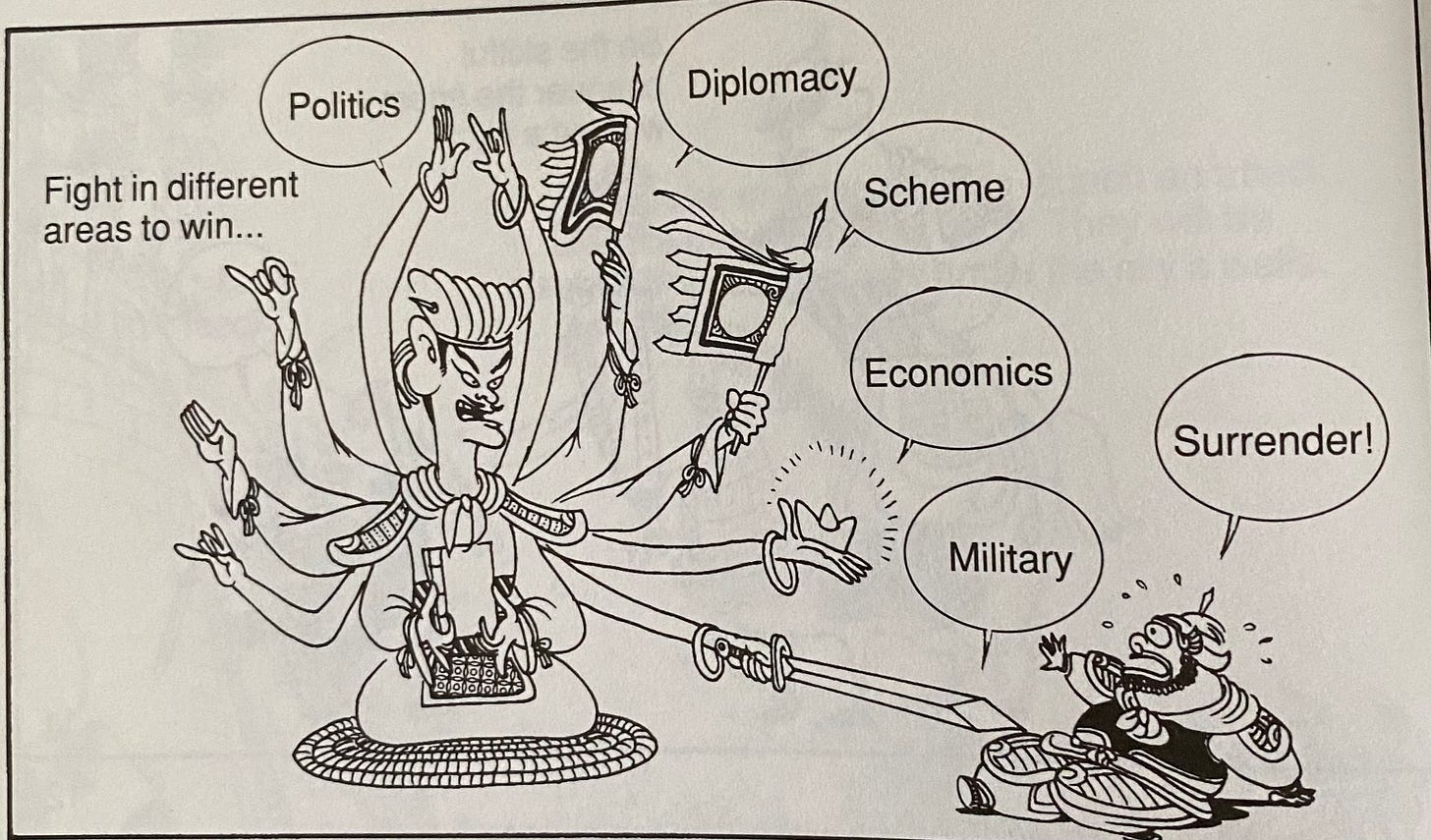

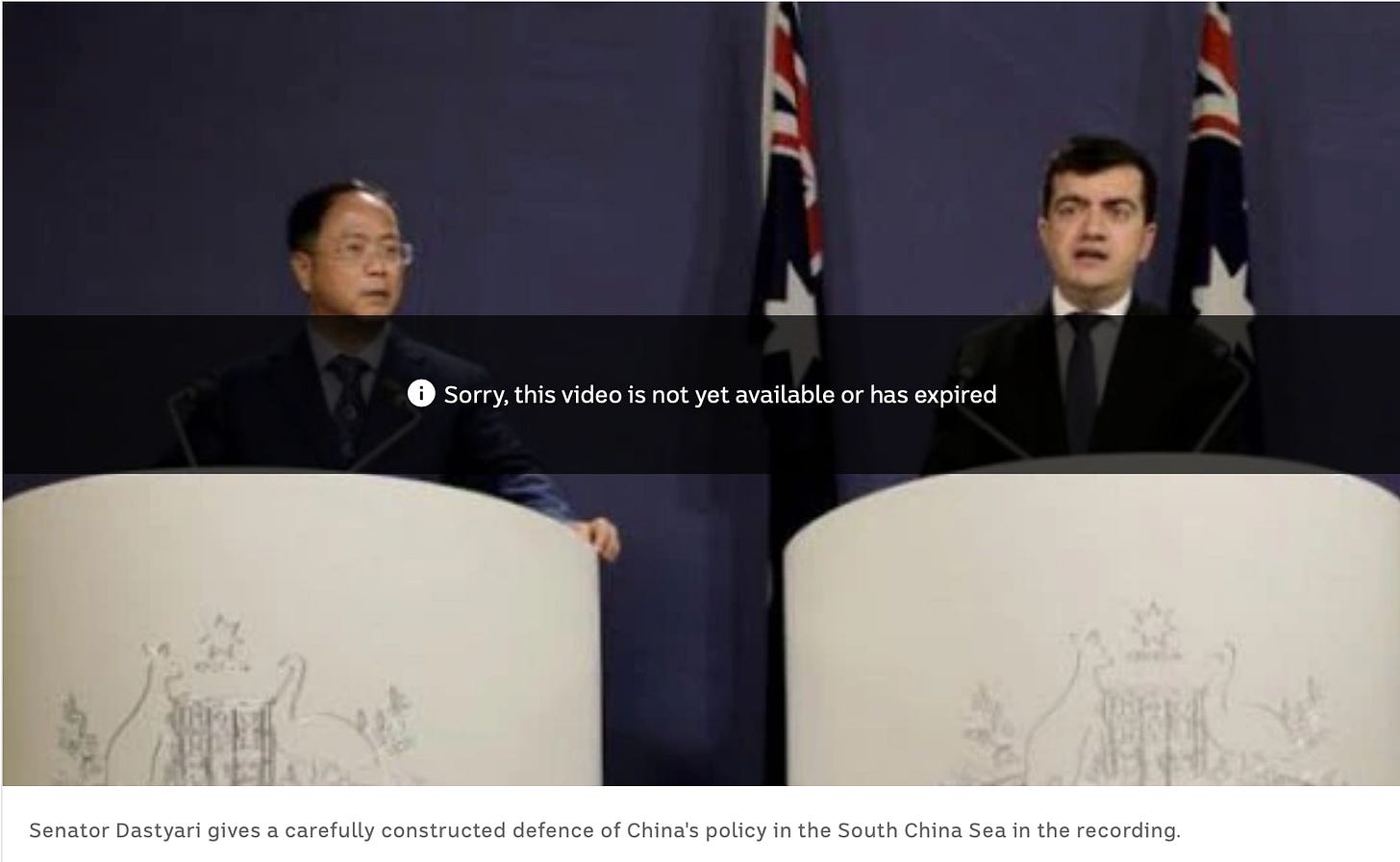





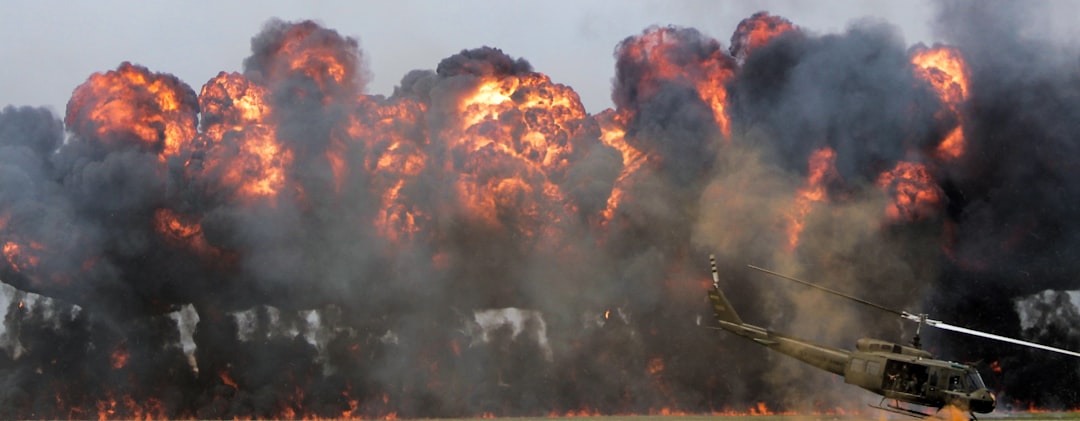

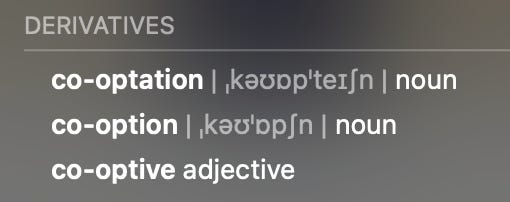
Thanks for the read! Living in Australia, I definitely felt that China's threat was brushed aside by almost all politicians. Beyond Labor's long love affair, the main feeling I got was that we can't talk about China without talking about the Chinese Australian citizens. Since that population is seen as a battleground between both parties, both parties silence themselves on CCP encroachment.
I feel that CCP shilling is both less common in Japan, but the threat is much more vocalised here. Its probably due to proximity and the governing parties don't feel frightened that the Japanese population won't support this issue.
I'd love to delve deeper into this topic from an Australian/Japanese resident perspective!